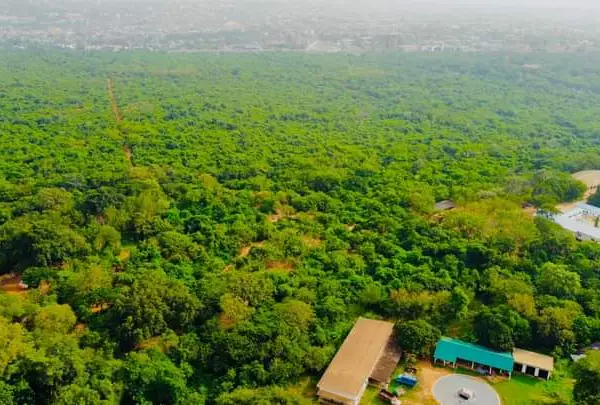Introduction:
“Good institutions certainly matter, and bad institutions can sound the death knell of development even in favourable democratic environments. But poor governance aided by sycophantic institutions may also hamper development and the socio-economic fortunes of a society.” While the continent of Africa has suffered varied degrees of political and social upheavals dating back to the slavery era through to the partition at the Berlin Conference in 1885; some of its current problems, stem internally from endemic corrupt practices perpetrated by its politicians, ably assisted and motivated by self-seeking civil servants. With that background, this blog reflects on two recent exemplary events within the judicial and political spaces of Liberia; which, emphasise the importance of impartial institutions needed to build a vibrant African continent with hope for its peoples.
Two Exemplary Events in Liberia
On November 18, 2023 at 3:11 pm GMT, Liberia’s electoral commissioner pronounced Mr Boakai, a 78-year-old veteran politician as the president-elect of Liberia, a country within the sub-region of Africa. At age 78, Mr Boakai represents a class of old persons actively seeking and winning political power in parts of Africa and other parts of the world. Across the Atlantic Ocean into the USA, President Biden and former President Trump are vying vigorously for political power come 2024. Undoubtedly, with old age comes experience and wisdom to run and manage the affairs of a state politically and socio-economically. Equally, the re-election of President Lula Da Silva in Brazil is an endured example of how experience and wisdom serve the wellbeing of a nation in the political realm. The examples of Biden, Trump and Da Silva are digressions; however, the point being made in respect of the Liberian case is that the peaceful and harmonious manner in which former President George Weah conceded defeat to President-elect Mr Boakai is worth commendation. According to BBC and Reuters reports, Weah placed the interest of Liberia and its people’s wellbeing above his personal interests, arguing that “Mama Liberia is paramount and its tainted history of civil war which claimed the lives of 250,000 people twenty-five years ago should help Liberians to unite so as to forge for national development.” Mr Weah’s statement, irrespective of his dismal performance as President of Liberia, carries significant weight in creating a path for African leaders to emulate by conceding defeat when they lose power during elections. Currently, there is a group of old people in the continent of Africa clamouring and holding onto political power without enough physical strength and mental capacity to cope with the demands of presidential office and to manage the affairs of their respective states efficiently. Examples of such fraying politicians are: Paul Biya of Cameroun; Museveni of Uganda; Bola Tinubu of Nigeria; Alassane Ouattara of Cote d’Ivoire and Ghana’s Nana Addo Dankwa, whose term of office ends in December 2024. It is politically wise that given the feeble status of such men coupled with their poor health, they would voluntarily resign or abdicate power to allow new and fresh hands with novel ideas to assume leadership to govern. Furthermore, considering the peaceful and prompt manner in which Weah facilitated the hand-over- of -power ceremony in Monrovia, it is safe to suggest that Liberia is setting a precedent worth emulation by leaderships and institutions in Africa to promote, protect and secure the wellbeing of their peoples politically.
Besides its diminutive size coupled with the sordid past history of civil war, the Liberian judiciary has demonstrated a sense of justice, impartiality and firmness in supervising the conviction and sentencing of a former chief Justice and minister -Gloria Maya MusuScott (Mususcott) to life in prison. The facts of the case as reported by the BBC were that, Muscott aged 70, collaborated with three other women to murder her niece, Charloe Musu, aged 29 years old. The judgment, which was pronounced by Judge Roosevelt Z. Willie, is quite profound in some respects. First, it seeks to repose confidence among Liberians who have lost hope and faith in their political leadership and civil servants to reinforce the tenets of equality of all citizens before the law. This legal and political victory as overseen by Willie’s high court places Liberia in a favourable light regionally. Second, the sentencing of Mususcott has a continent-wide implication in that it will spur confidence and a sense of accountability, which are often non-existent in many public sectors across Africa, to perform their roles conscientiously in securing a fairer society. Sadly, one major problem undermining the political and legal structures of African states is impunity and deference toward elites and people of status of which the sentencing of Mususcott in Liberia sets the pace.
Liberia Sets the Pace
With impunity and deference toward elites and people occupying positions in government and public services the management of states’ wellbeing in every sphere is compromised. In Africa, especially Ghana and Nigeria, there is an endemic “infection” that undercut the socio-economic fabric of the peoples. For example, in Ghana and Nigeria, elites and politicians adopt phrases such as “ do you know who I am”; “ order from above”; “honourable” “chief” and “self-made man” among many others. Those phrases are used by politicians and their cronies to prevent the public and public institutions from criticising and holding them accountable. Contrary, in many true democratic states, politicians and public servants legally and voluntarily offer themselves to serve their peoples and thus are held accountable for non-performance. Conversely, in Ghana, Nigeria and many parts of Africa, politicians regard themselves as demi-gods and over-lords and often escape accountability for their wrong-doings in many respects. That explains the significance of the judgment against Mususcott, which should serve as a guiding principle in promoting accountability among public servants especially politicians in Africa.
Concluding Remarks
Good governance requires accountability, which necessitates effective monitoring and sanctioning. The use of judicial and state institutions have been an important instrument in tracking progress and ensuring efficient use of resources across all levels of government. More importantly, criticising and punishing politicians, including agents of public institutions regardless of their status will enhance the wellbeing of the peoples while emboldening them to contribute actively towards the democratic systems of the states. Thus, institutions matter in governance is echoed prominently in the judgment against Mususcott.




